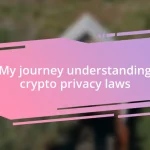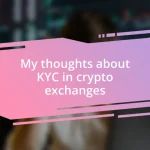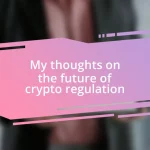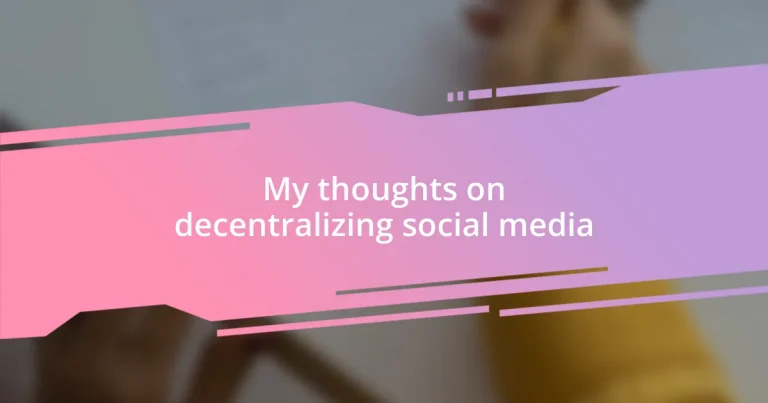Key takeaways:
- Decentralized social media empowers users by enhancing control, privacy, and innovation compared to traditional platforms.
- Challenges include user adoption difficulties, technical complexity, and governance issues, alongside potential security vulnerabilities.
- The future of social media is trending towards user-generated platforms and the integration of emerging technologies like AI for improved moderation.
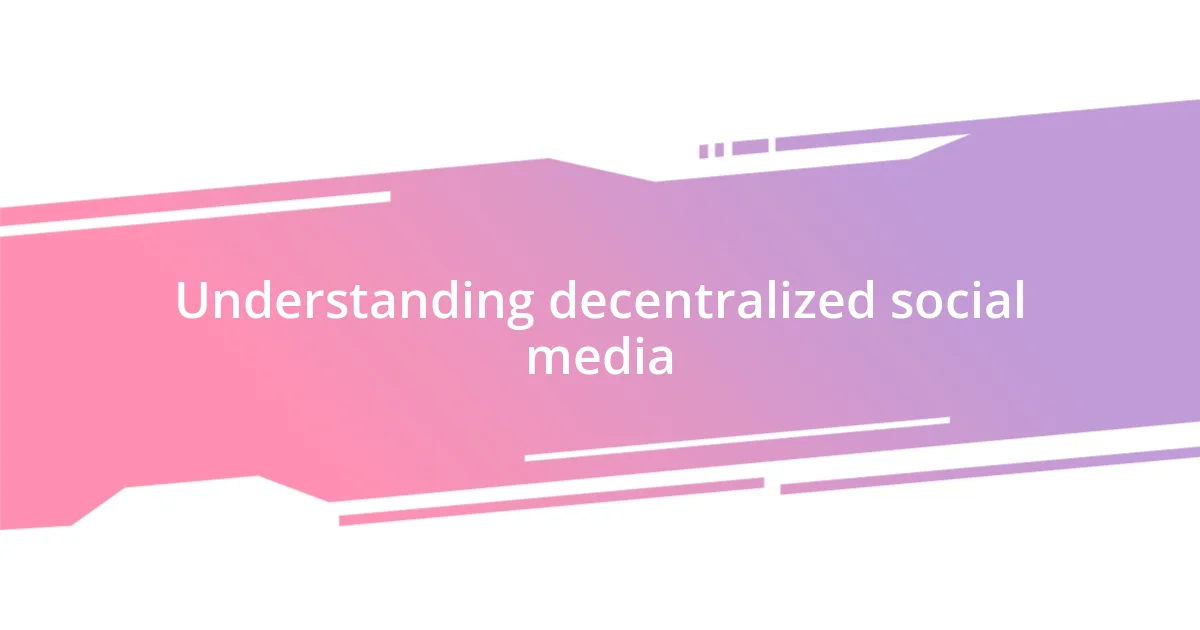
Understanding decentralized social media
Decentralized social media shifts the control of content and connections from centralized platforms to individuals. I remember the frustration I felt when a favorite platform decided to censor specific opinions—suddenly my voice seemed insignificant. Don’t you think it’s liberating to imagine a space where we can truly express ourselves without those concerns?
In this new paradigm, each user can contribute to the network, making it more resilient and diverse. It reminds me of a community gathering where everyone has something valuable to share. Have you ever felt that sense of belonging when you found like-minded individuals in such settings? That’s the essence of decentralized platforms—they can foster genuine community interactions.
Moreover, the technological backbone of decentralized social media relies on blockchain and peer-to-peer networks, which can enhance privacy and data security. When I learned how these systems operate, it felt revolutionary, like taking back control over our own digital footprints. Isn’t it empowering to think that we can safeguard our data while connecting with others?
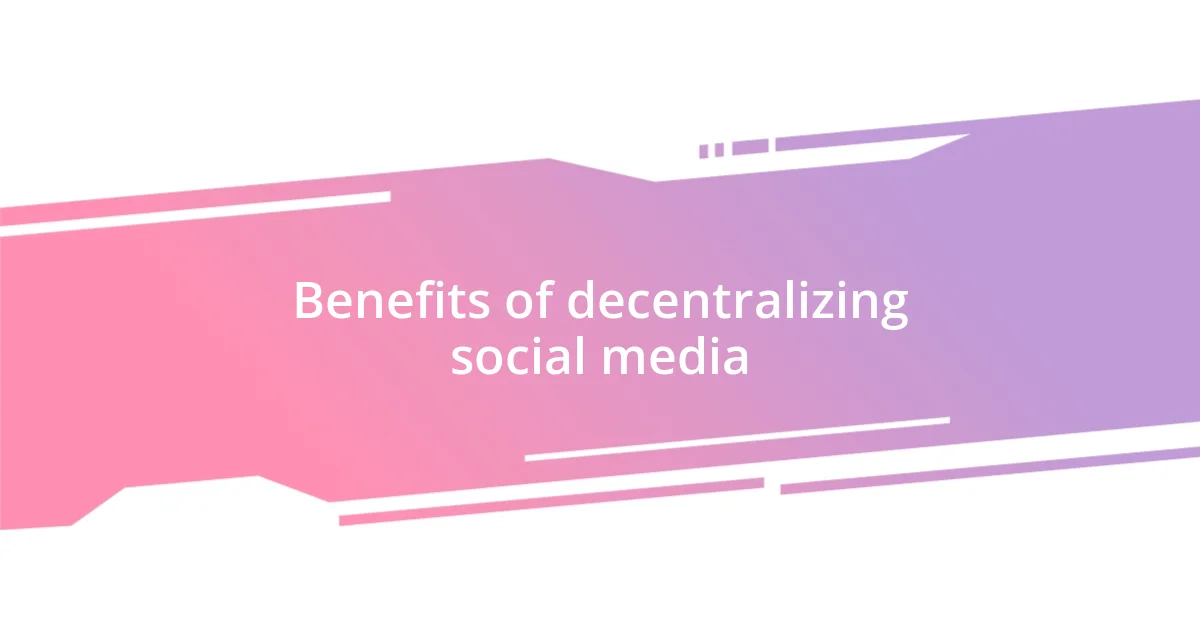
Benefits of decentralizing social media
The benefits of decentralizing social media are palpable. One significant advantage is the increase in user agency. I remember when I first transitioned to a decentralized platform; it felt like stepping into a vibrant marketplace where every voice mattered. Users truly have control over their content and can interact without the threat of censorship or algorithm manipulation. Isn’t it refreshing to think about a space where your contributions hold equal weight as everyone else’s?
Another remarkable benefit lies in enhanced privacy. Traditional social media platforms often monetize user data, leaving us feeling like mere commodities. Once, I discovered that a well-known site had accessed my information without my explicit consent, and it troubled me deeply. With decentralized systems, the emphasis shifts to user privacy, ensuring that we have a say in how our data is utilized. Could there be a better way to build trust among users?
Finally, decentralization encourages innovation. When various independent developers contribute to social media tools, it fosters a diverse range of applications and features. I recall trying out a new decentralized app that seamlessly integrated multiple functionalities, leaving me amazed at the creativity within this community. The potential for continuous improvement is far greater, empowering users to shape their online experience to better suit their needs.
| Benefit | Traditional Social Media |
|---|---|
| User Control | Centralized control and censorship |
| Privacy | User data often monetized without consent |
| Innovation | Limited development by a few corporations |
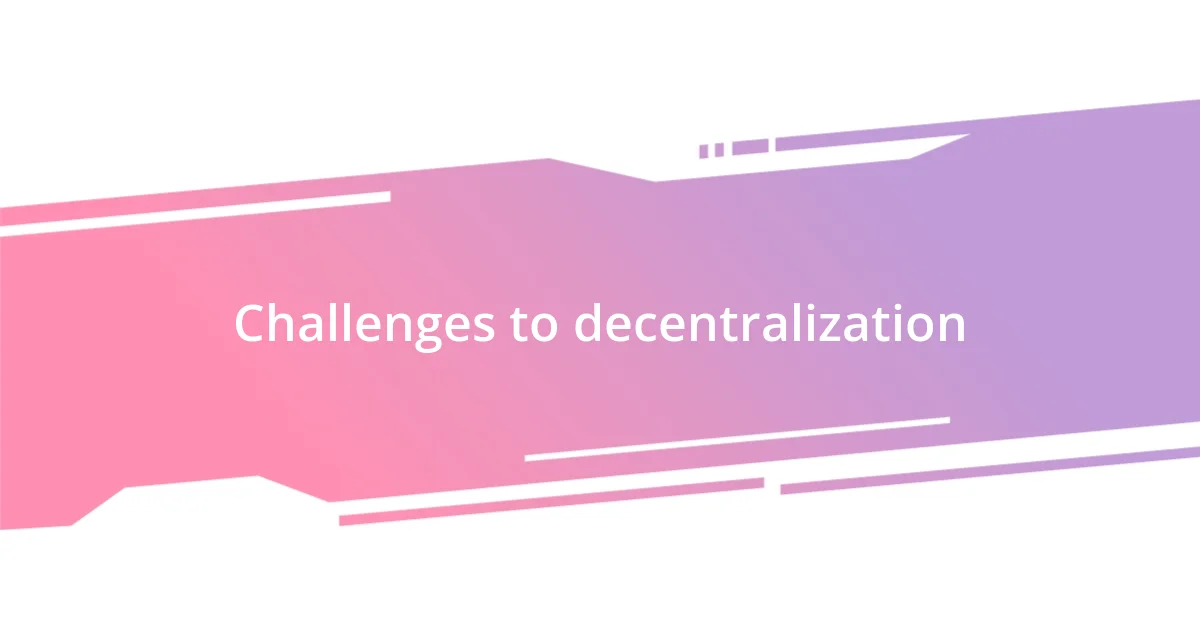
Challenges to decentralization
The road to decentralization is riddled with challenges that require thoughtful consideration. One major hurdle is user adoption. I vividly recall my early days on a decentralized platform; it felt like navigating a complex maze. The learning curve can be steep, especially for those accustomed to the simplicity of traditional networks. This transition isn’t just about technology; it needs a shift in mindset, which isn’t easy for everyone.
Some of the key challenges include:
- Technical complexity: Many users might find blockchain technologies daunting and hard to understand.
- Fragmentation: With multiple platforms, it’s easy for smaller communities to become isolated, hindering meaningful interactions.
- Governance issues: Decentralized networks often lack a clear framework for decision-making, leading to potential conflicts among users.
Moreover, security concerns can’t be overlooked. While decentralization enhances privacy, it also opens the door to potential vulnerabilities. One time, I was part of a small group trying to set up a decentralized forum, and we faced incidents of spam and fake accounts that threatened our community vibe. It was disheartening to see our hard work overshadowed by unwanted interference. Ensuring robust safety measures in decentralized environments remains a pressing issue.
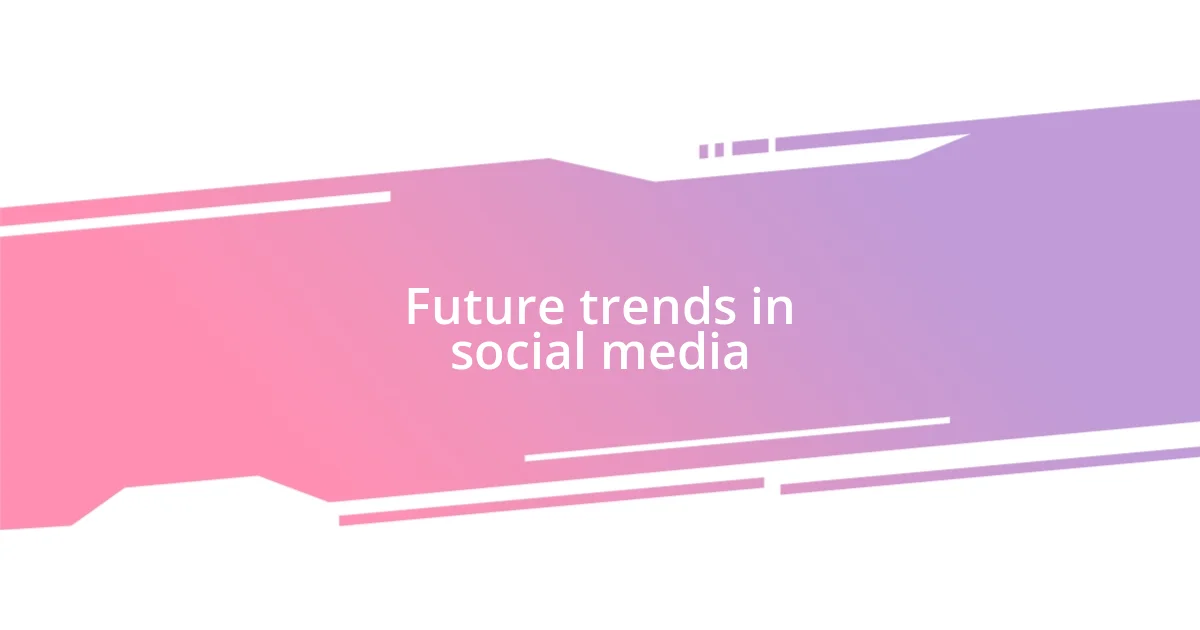
Future trends in social media
The future of social media is undoubtedly leaning toward increased decentralization. I can’t help but feel excited about how this shift could fundamentally change our interactions online. Picture a world where algorithms don’t dictate what we see but instead allow us to curate our feeds based on genuine connections. Can you imagine scrolling through a timeline full of authentic content rather than an endless array of ads?
As I explore this future landscape, I see a rise in user-generated platforms that prioritize inclusivity. For instance, I recently joined a small network where the community members created rules together, ensuring everyone felt represented. This approach fosters a sense of belonging that larger platforms often overlook. Aren’t we all searching for spaces where we can express ourselves freely and connect with like-minded individuals?
Moreover, it’s fascinating to consider the role of emerging technologies like artificial intelligence in decentralized frameworks. I’ve glimpsed how AI can aid in moderation without compromising user autonomy. I remember attending a workshop where developers discussed using AI to help identify harmful content more effectively while respecting users’ voices. Is that not a glimpse of a balanced future where technology works for us and not against us?
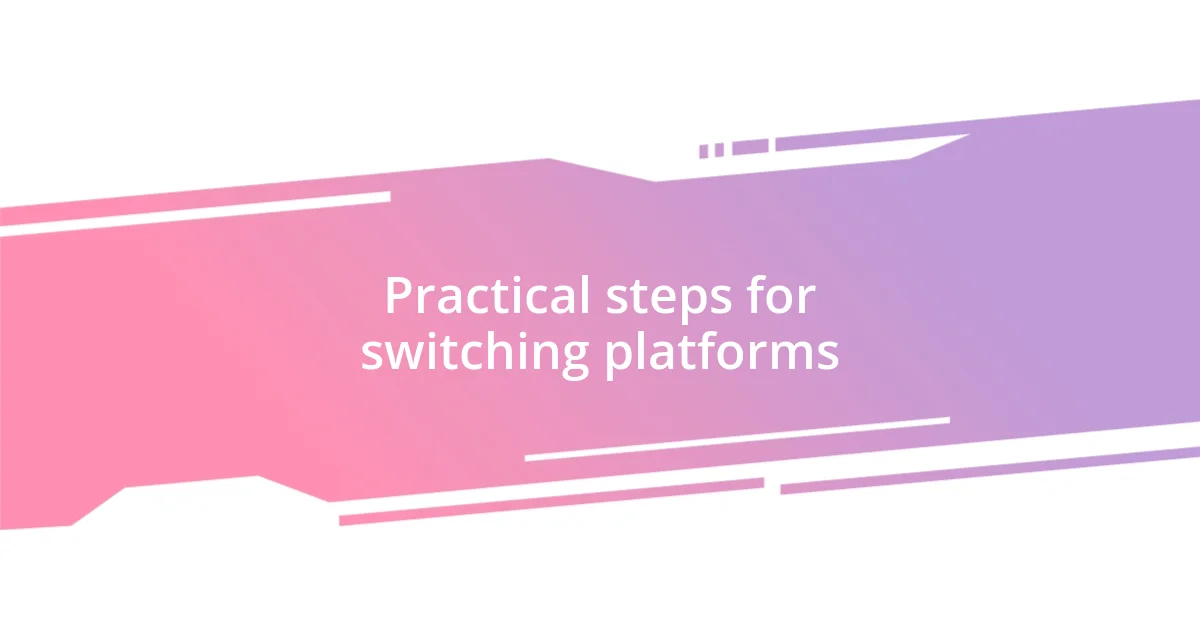
Practical steps for switching platforms
Making the switch to a decentralized social media platform can be an exciting journey, but it also requires some thought. First, I recommend taking a bit of time to research available platforms that align with your values. When I explored alternatives, I remember stumbling upon a community-driven forum that made me feel instantly at home. Have you ever found a space that just clicked? It’s those vibes that really make the difference.
Once you’ve chosen a platform, start by setting up your profile and slowly migrating your content. I recall the thrill of customizing my new profile while feeling a twinge of nostalgia for the old familiar space. It’s crucial to inform your followers about the switch, inviting them to join you. After all, transitioning in isolation can feel a bit lonely, don’t you think? Sharing why you’re making the move often sparks interest and encourages others to take the leap as well.
Lastly, immerse yourself in the community. Engage with your new peers by participating in discussions and learning the platform’s unique culture. I remember feeling slightly out of place at first, but the more I interacted, the more I realized everyone else was just as eager to connect. It’s all about building those authentic relationships that often feel missing on larger networks. Have you ever noticed how much more rewarding conversations can be in smaller groups? That’s the beauty of decentralization.






